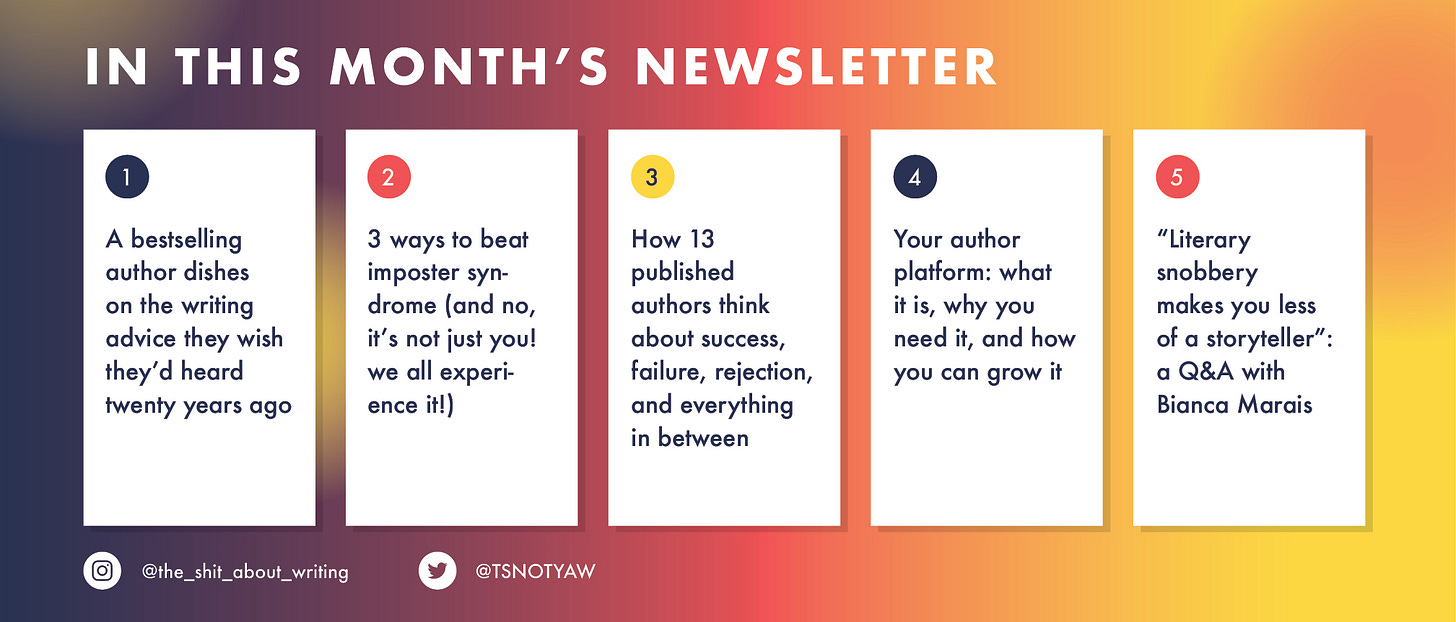3 ways to beat imposter syndrome; 13 authors on success, failure, and everything in between; author platform 101: do you really need one and how can you build it?
✨Plus, bestseller Liv Constantine shares words of wisdom for aspiring authors✨
Hello and welcome! 😊 We hope your writing is going well or, if you’re experiencing frustrations in that part of your life right now, we hope you remember to be kind to yourself. Why? Because being a writer is not for the faint of heart but you’re here and you’re doing it! Writers make so many sacrifices in order to write. They put themselves out there …
Keep reading with a 7-day free trial
Subscribe to The Shit No One Tells You About Writing to keep reading this post and get 7 days of free access to the full post archives.




